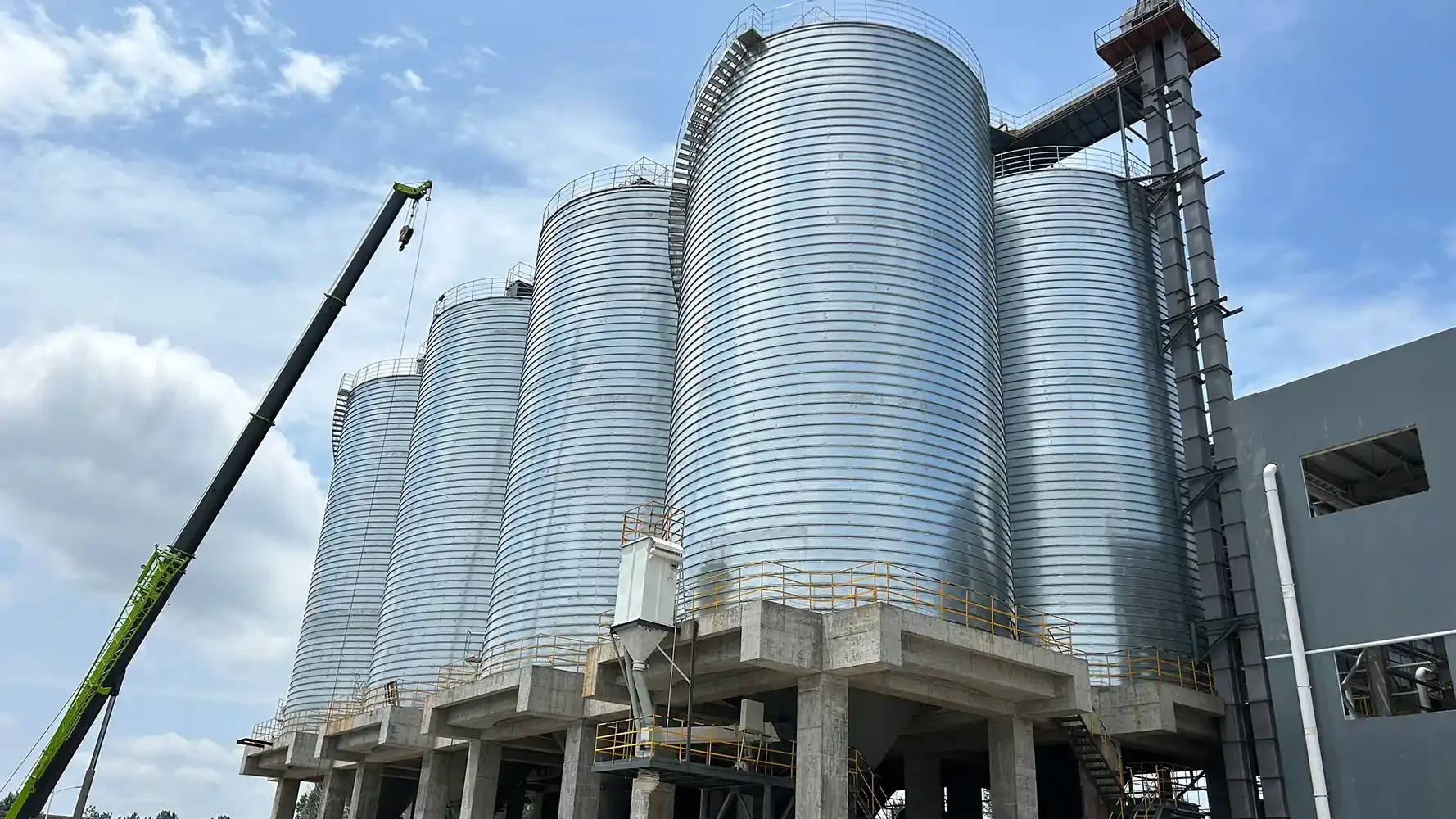Introduction to Gypsum Steel Silo Technology
Gypsum steel silos have emerged as a pivotal solution in industrial storage, especially for bulk materials like gypsum, cement, and powdered minerals. These silos combine the strength of steel construction with the tailored design needed for safe, efficient, and long-term storage. The increasing demand for high-quality gypsum in construction and manufacturing underscores the importance of reliable storage systems. In this blog post, Flyer, a high performance industrial storage silos exporter, will share the features of gypsum steel silo for sale, its design considerations, etc.
Key Features of Modern Gypsum Steel Silos
Modern gypsum steel silos incorporate advanced engineering to ensure structural stability and operational efficiency. Key features include:
-
Robust Steel Construction: Utilizing high-grade steel sheets that provide resistance against corrosion, weather elements, and mechanical stresses.
-
High Load Capacity: Designed to store large quantities of gypsum, enabling continuous supply for production lines.
-
Customizable Dimensions: Depending on the storage requirement, silos can be designed with different diameters and heights.
-
Safety Mechanisms: Equipped with pressure relief valves, monitoring sensors, and controlled discharge systems to prevent accidents.

Design Considerations for Gypsum Steel Silo
Designing a gypsum steel silo requires careful planning to optimize storage efficiency and ensure operational safety. Several factors need to be considered:
-
Material Flow Characteristics: Gypsum powder has specific flow properties that influence hopper design and discharge mechanisms.
-
Environmental Factors: Resistance to humidity, temperature fluctuations, and chemical interactions is critical to preserve material quality.
-
Structural Integrity: Reinforced steel frameworks and proper foundation design prevent deformation and structural failures.
-
Maintenance Accessibility: Provision for easy inspection and maintenance ensures long-term functionality.
Advantages of Using Gypsum Steel Silo
Adopting gypsum steel silos in industrial operations brings multiple benefits:
-
Enhanced Storage Efficiency: Vertical silo structures minimize ground space usage while maximizing storage capacity.
-
Improved Material Quality: Controlled environment inside the silo reduces contamination, moisture ingress, and material degradation.
-
Operational Flexibility: Silos can integrate with automated feeding systems for cement plants, plasterboard production, and construction projects.
-
Durability and Longevity: Steel silos are engineered for decades of service with minimal maintenance requirements.
Integration with Material Handling Systems
Gypsum steel silos are not standalone storage units; their real efficiency comes from integration with material handling systems:
-
Conveying Equipment: Screw conveyors, pneumatic systems, and belt conveyors ensure smooth material transfer.
-
Automation Controls: Sensors and programmable logic controllers (PLCs) optimize filling and discharge processes.
-
Dust Collection Systems: Minimizing airborne particles during loading and unloading reduces environmental impact and workplace hazards.
Maintenance Practices for Gypsum Steel Silos
Routine maintenance is crucial to extend the service life of gypsum steel silos:
-
Regular Inspection: Checking for corrosion, structural cracks, and wear on discharge mechanisms.
-
Cleaning Procedures: Removing residual gypsum powder prevents clogging and microbial growth.
-
Lubrication and Mechanical Checks: Ensuring moving parts, like valves and gates, function without friction-related damage.
-
Protective Coatings: Applying anti-corrosion coatings or paints to maintain steel durability under challenging environmental conditions.
Sustainability and Environmental Considerations
Modern gypsum steel silos are designed with sustainability in mind:
-
Recyclable Materials: Steel construction allows for recycling at the end of the silo’s life cycle.
-
Energy Efficiency: Optimized designs reduce the need for mechanical handling and minimize energy consumption.
-
Dust Control Measures: Proper sealing and filtration systems reduce environmental pollution.
-
Reduced Material Wastage: Controlled discharge and storage minimize loss of gypsum powder.
Applications of Gypsum Steel Silo
Gypsum steel silos are widely utilized in industries that require reliable storage of bulk powdered materials:
-
Cement and Plasterboard Production: Ensuring a continuous supply of gypsum to maintain production flow.
-
Construction Projects: On-site silos for large-scale construction ensure consistent availability of materials.
-
Chemical Manufacturing: Storage of gypsum and similar powdered minerals for industrial processes.
-
Agriculture: Occasionally used for storing mineral additives in controlled conditions.
Conclusion
Gypsum steel silos represent a cornerstone of efficient material storage and handling in industrial operations. Their combination of structural strength, design flexibility, and operational safety ensures that industries can maintain continuous production while protecting material quality. As demand for gypsum and other powdered minerals grows, the adoption of high-quality steel silos will continue to be a strategic investment for businesses seeking efficiency, durability, and sustainability.
www.flyersteelsilo.com
Flyer


+ There are no comments
Add yours